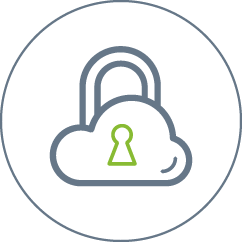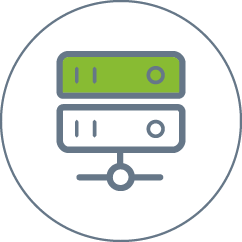Two of the most expensive crimes, counterfeiting and piracy, cost companies as much as 30 billion per year. Intellectual property (IP) is the lifeblood for many companies in the IT and High Tech industries, yet steep competition with foreign countries and other key competitors leads to sabotage, risk and theft. No need to go to the library and check out a mystery novel, corporate theft is writing its own thriller.
Verizon conducted a study in 2012 that named the information and technology industry one of the top three verticals targeted by IP thieves. Though their motives vary, most thefts occur because opponents seek strategic, technological or financial advantages. In fact, according to the 2016 report, 34% of attacks are typically motivated by financial gain.
The Perpetrators
One of the most infamous examples is portrayed by the drama between tech giants Apple and Samsung. In late 2012, a court battle ended with Samsung paying .05 billion in damages. Samsung was found guilty of six iPad patent violations.
The battles aren’t just fought between giant companies. Versata filed in Texas for an injunction against Ford, who used Versata’s product since 1988 as part of their product-development procedure. According to the billion lawsuit, Ford terminated the .45 million-a-year contract in 2014 after Versta asked for a five-year commitment with a 13% increase in price. Instead of hiring Versta, they began using a program Ford developed in-house based on Versata’s proprietary software.
“Our intellectual property is the lifeblood of our company, and we must protect it all costs,” — Mike Richards, the president of global automotive business at Versata’s parent company
Ford’s contracts with Versata represented one-third of the Versata’s business. Losing Ford as a client not only greatly threatened their revenue and profit, but their intellectual property. Versata dealt with other companies such as Kia, Nissan and Toyota and having Ford reverse-engineer their product meant they could attempt to sell it to other companies.
Yet, Ford did not allow Versata to verify that they had removed their intellectual property from all traces of their manufacturing, causing Versata to move forward with the lawsuit.
Currently, the lawsuit is still active, though, in a more recent development, Versata was denied from prohibiting Ford from submitting a petition to the Patent Office that may invalidate Versata’s patents.
Because Versata did not thoroughly protect their property and had rocky relations with Ford, they are now almost into the second year of this lawsuit, costing their company time and money. This source of money is now less without Ford’s contract as business revenue.
Incidents Across the Pond
International law only complicates corporate intellectual assets and property. Mary Shacklett, contributor to Tech Republic described her encounter with IP theft. Not uncommon for multi-national corporations, blatant IP theft is often unsolvable, with foreign laws causing companies incredible losses.
It was “yesteryear” when I was a corporate executive in the semiconductor equipment industry and we had an offshore customer purchase a one million dollar piece of equipment from us. The customer proceeded to reverse-engineer the product and began competing against us in the market a year later!There was little we could do then because of loose enforcement of patent laws in Asia—so we took the hit and moved onto our next R&D (research and development) project.
Companies that expand internationally have an increased risk in protecting their intellectual property. Patent rights are still left to each country’s government to be determined and validated. Even though agreements such as the Trans-Pacific Partnership technically made it easier for businesses to deal with Pacific Rim countries, there is still a lack of protection for patents.
In prior years, companies struggled with multiple valid U.S. patents having their patent rights revoked or denied. In 2012, there were nine incidents in India from U.S. companies alone. Due to a lack of protection, it is even more important for companies to share documents with countries such as India securely.
Forced Entry
When patents and other intellectual property are compromised, there are a number of various reasons. A competitor or hacker can acquire IP through manipulating employees without their knowledge and exploit human error.
According to the study completed by Verizon, the number one cause of IP theft was the misuse and abuse of credentials. Even the most rigorous of screening processes still can’t determine if an employee is willing to sell their login, or simply use it for personal interests.
Approximately 45% of IP theft cases identified by Verizon had some form of credential abuse as a cause or catalyst for theft. According to their 2016 Data Breach report, Verizon found that of insider-caused breaches 14% of culprits were in leadership positions and an additional 14% were in jobs that provided a special level of access such as systems administrators or developers.
When login credentials are put in the hands of trusted employees, trouble still can arise. The same study showed that hacking successfully exploited and stole credentials in 34% of IP theft cases. In 32% of cases, social engineering was used to find the information needed to complete the theft. These facts only advance the case for further employee education.
When a breach has occurred the most common compromised assets include two elements of a network: file and database servers. Closely following the network servers, financial and accounting staff members often have their documents or credentials compromised.
The answer may be having a central point for storage and sharing of files and important data. Tools like SmartFile help companies manage and track intellectual property as well as make it simple to share IP securely both internally and externally.
The risks are everywhere. With intellectual property being the foundation for most technology and software companies, IT and Risk Management departments have an incredible goal. From basic company operations to international protection, intellectual property is extremely vulnerable. It is up to managers, sysadmins, and leaders to put the right tools in place, build awareness and implement safeguards.
Visibility into File Access & Sharing
Want Cloud Storage?

Need Enhanced Security?

